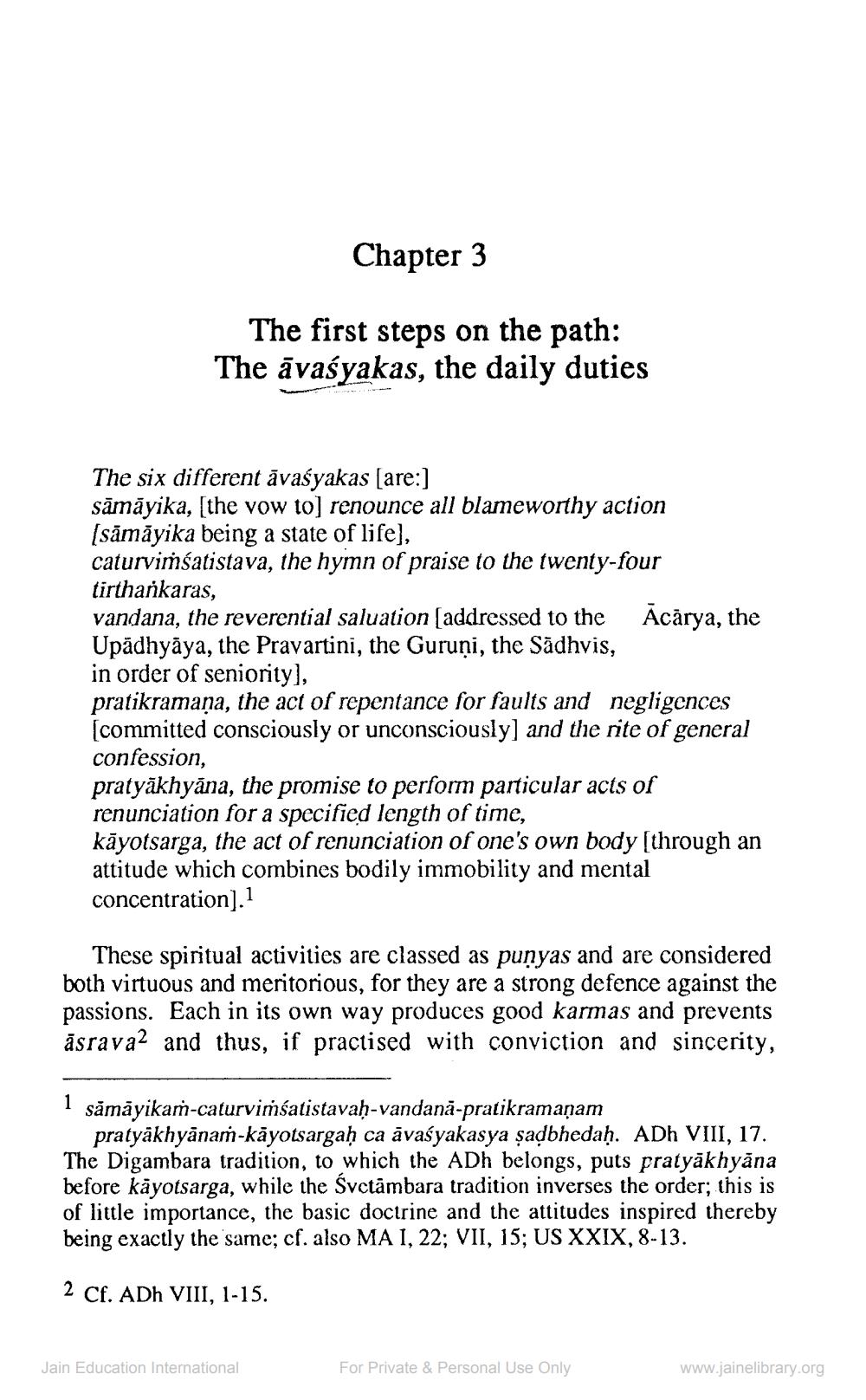________________
Chapter 3
The first steps on the path: The avaśyakas, the daily duties
The six different āvasyakas [are:]
sāmāyika, [the vow to] renounce all blameworthy action [sāmāyika being a state of life],
caturviṁśatistava, the hymn of praise to the twenty-four tirthankaras,
vandana, the reverential saluation [addressed to the Upadhyaya, the Pravartini, the Guruņi, the Sadhvis, in order of seniority],
pratikramaņa, the act of repentance for faults and negligences [committed consciously or unconsciously] and the rite of general confession,
pratyākhyāna, the promise to perform particular acts of
renunciation for a specified length of time,
kayotsarga, the act of renunciation of one's own body [through an attitude which combines bodily immobility and mental concentration].1
Acarya, the
These spiritual activities are classed as punyas and are considered both virtuous and meritorious, for they are a strong defence against the passions. Each in its own way produces good karmas and prevents asrava2 and thus, if practised with conviction and sincerity,
1 sāmāyikaṁ-caturviṁśatistavaḥ-vandanā-pratikramaṇam
pratyäkhyānaṁ-kāyotsargaḥ ca āvaśyakasya ṣaḍbhedaḥ. ADh VIII, 17. The Digambara tradition, to which the ADh belongs, puts pratyākhyāna before käyotsarga, while the Śvctambara tradition inverses the order; this is of little importance, the basic doctrine and the attitudes inspired thereby being exactly the same; cf. also MA I, 22; VII, 15; US XXIX, 8-13.
2 Cf. ADH VIII, 1-15.
Jain Education International
For Private & Personal Use Only
www.jainelibrary.org




